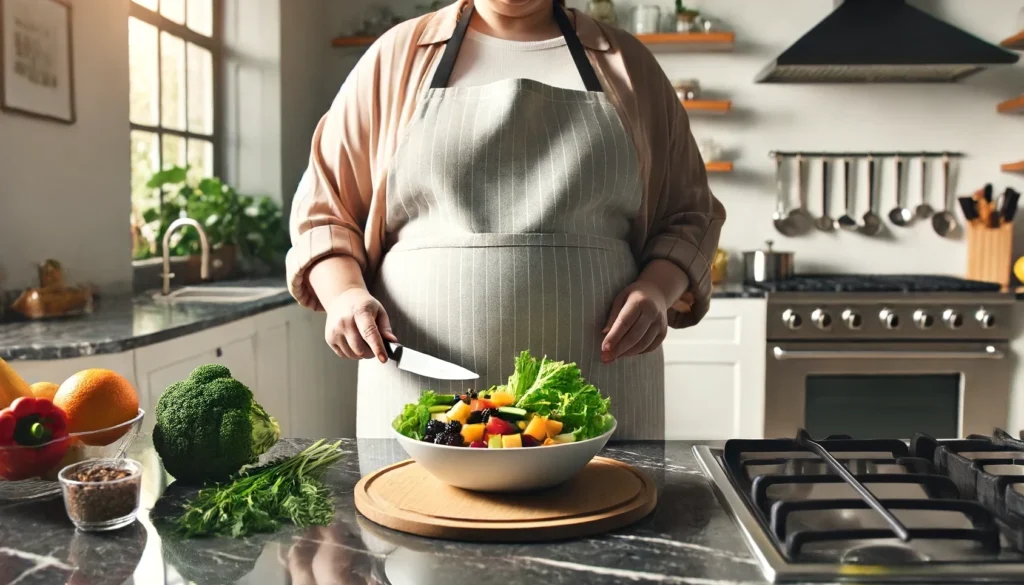High Cholesterol Diet Advice - Tips to Lower Cholesterol
Subject
High Cholesterol Diet
Date
15 June 2024

Managing high cholesterol is crucial for heart health. In this article, we’ll provide high cholesterol diet advice to help lower cholesterol levels.
What happens if your cholesterol is too high?
High cholesterol, particularly the elevated low-density lipoprotein (LDL) cholesterol, is not just a health concern, it’s a serious threat. LDL cholesterol, often referred to as ‘bad cholesterol,’ can build up in artery walls, forming plaques that narrow and harden these blood vessels. This process, known as atherosclerosis, hampers blood flow, leading to a host of severe cardiovascular issues.
One of the most immediate risks is coronary artery disease (CAD), where the arteries supplying blood to the heart become obstructed. This can result in chest pain (angina) and increase the likelihood of a heart attack. A blood clot can form if a plaque ruptures, further obstructing blood flow. Similarly, if arteries supplying blood to the brain are affected, it can cause a stroke. Early detection of high cholesterol is not just crucial, it’s empowering, as it can prevent these serious health issues, highlighting the importance of regular health check-ups and cholesterol screenings.
High cholesterol doesn’t just affect the heart, it can also impact the limbs, particularly the legs, leading to a condition called peripheral artery disease (PAD). This condition disrupts blood flow, causing pain and increasing the risk of infection and gangrene due to poor circulation. Furthermore, high cholesterol often coexists with other risk factors like hypertension and diabetes, heightening the risk of cardiovascular events.
Managing high cholesterol is not an insurmountable challenge. It primarily involves making lifestyle changes, such as adopting a healthier low cholesterol diet, engaging in regular exercise, and in some cases, taking medication. These measures have been scientifically proven to help reduce LDL levels, increase high-density lipoprotein (HDL) cholesterol, the ‘good cholesterol,’ and significantly lower the risk of serious health issues.
Worst foods for high cholesterol
Certain foods are particularly detrimental for individuals with high cholesterol, often contributing to the build-up of plaque in arteries and increasing the risk of heart disease. The worst offenders typically include:
- Trans fats: Found in many fried and commercially baked goods, such as cookies, cakes, and pastries, trans fats significantly raise LDL (bad) cholesterol while lowering HDL (good) cholesterol. These fats are often listed on labels as partially hydrogenated oils.
- Saturated fats: Common in red meat, full-fat dairy products, and processed meats like sausages and bacon, saturated fats can elevate LDL cholesterol levels. Limiting the consumption of these foods is crucial for managing cholesterol.
- Fried foods: Items like French fries, fried chicken, and other deep-fried delicacies are high in both trans fats and saturated fats, which can harm cholesterol levels.
- Processed meats: Sausages, hot dogs, and deli meats are high in saturated fats and contain added preservatives and sodium, which contribute to cardiovascular risks.
- Refined carbohydrates and sugars: Foods such as white bread, sugary cereals, candies, pastries and sugar-sweetened beverages can increase your triglyceride levels and low your “good” HDL cholesterol levels, which in turn can negatively impact your LDL levels.
- Baked goods and sweets: Many desserts, including cakes, cookies, and pies, contain large amounts of butter, shortening, and sugar, all of which can negatively impact cholesterol levels.
By making conscious choices and reducing or avoiding these foods, you can take control of your cholesterol levels and support your cardiovascular health. These steps can make a significant difference to your overall well-being.

Best Diet for High Cholesterol
If you have high cholesterol, adopting a low cholesterol diet that helps lower your cholesterol levels and improve your overall heart health is crucial. Here are vital dietary changes to consider:
- Increase Fibre Intake: Foods rich in soluble fibre can help reduce cholesterol absorption into your bloodstream. Good sources include oats, barley, beans and legumes, fruits, and vegetables.
- Opt for Healthy Fats: It’s as simple as replacing saturated and trans fats with healthier unsaturated fats. Use olive oil and eat plenty of avocado, and nuts and seeds. Fatty fish like salmon, mackerel, and sardines are also beneficial due to their omega-3 fatty acids.
- Eat Plenty of Fruits and Vegetables: These are not just low in calories, but also packed with essential nutrients, helping you maintain a healthy weight and reduce cholesterol levels.
- Choose Whole Grains: Whole grains like brown rice, rye bread, and quinoa are better than refined grains because they provide more fibre and nutrients.
- Limit Red Meat and Dairy: Opt for lean cuts of meat and limit dairy products. Consider plant-based proteins like beans, tofu, and lentils as alternatives.
- Avoid Processed Foods: Reduce intake of processed and fried foods, often high in unhealthy fats and cholesterol.
- Stay Hydrated: Drink plenty of water and limit sugary beverages, which can contribute to weight gain and higher cholesterol levels.
By making these dietary adjustments, you can confidently and effectively manage your cholesterol levels and support your heart health.
What can I drink to flush out my cholesterol?
Incorporating certain beverages into your diet can help flush out cholesterol and improve overall heart health. Green tea is popular due to its high antioxidant content, particularly catechins, which have been shown to lower LDL (harmful) cholesterol levels. Consuming green tea regularly can help reduce cholesterol absorption in the intestines.
Another effective beverage is a berry smoothie; berries such as blueberries, rasberries and strawberries are particularly rich in fiber and antioxidants which can decrease LDL cholesterol levels. Add flaxseeds or chia seeds to your smoothie for those additional omega-3 fatty acids and fibre.
Instead of choosing a miracle drink, it’s important to limit sugary drinks like sodas and sugary teas and lattes as they can reduce your good cholesterol.
It is also a good idea to limit your intake of alcohol as it’s highly inflammatory and can harm your heart health greatly.
Remember, while these drinks can help manage cholesterol levels, they should be part of a balanced diet and healthy lifestyle for optimal cardiovascular health. Regular exercise, avoiding saturated fats, and maintaining a healthy weight are crucial components of cholesterol management.
Can a nutritionist help lower cholesterol?
A cholesterol nutritionist can help lower cholesterol by having a holistic approach, incorporating personalised dietary plans and education on cholesterol-lowering foods, physical activity, and lifestyle modifications. These plans, when followed diligently, have been proven time and again to be highly effective. They can recommend foods rich in soluble fibre, like legumes and beans, which reduce the absorption of cholesterol. They also advise on healthy fats, such as those found in nuts and olive oil, to replace saturated and trans fats that raise cholesterol levels. Nutritionists can guide portion control and provide balanced meal planning to support weight management, further aiding cholesterol reduction. Regular consultations and tailored advice ensure that dietary changes are sustainable and effective, making nutritionists valuable allies in managing cholesterol levels.
At Nutribeings, our founder, Sonam Hitendre specialises in high cholesterol diets and her qualifications include the following:
- MSc Nutrition and Dietetics RD (registered dietitian)
- MSc Public Health Nutrition MPH (public health nutritionist)
- Certified Dietitian Nutrition Coach
- Certified Fertility Dietitian
Tiny changes
Life-changing results
How much does it cost to see a cholesterol nutritionist?
At Nutribeings, we have designed several programmes using our proprietary five-stage methodology, which will serve as the blueprint for life-changing transformation. These start from just £199/ month! Start your high cholesterol nutrition journey today!





